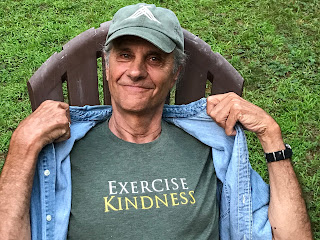Preparing Students for the Society that Ought to Be
By Christen Higgins Clougherty
Quaker schools are historically noted for
preparing students for the society, not as it is, but as it ought to be
(Brinton 1967, 8). Following this belief we have to ask, “what should society
be?” “What unmet potential has yet to be realized?” “How are we, as Friends
educators, preparing youth for something that does not yet exist?”
In my work on global citizenship I explore
how schools, including Friends schools, are meeting this challenge in
interesting and meaningful ways. It is the Quaker dedication to action and
change that continues to draw me to work with Friends schools. For this blog
segment, I want to invite readers to share what IS happening at your school
that demonstrates a commitment to educating for international understanding.
The topic of international understanding or
global awareness appears as a Quaker concern in both Britain and America. In an
opening address to a British Quaker education conference the speaker defines
education as “a collection of experiences which enhances self-knowledge,
enhances knowledge of the world as it is and as it is becoming, and develops
the capacity to make informed choices” (Hubbard 1988, 9). A group of educators
gathered at this conference composed an essay that describes the need, role and
function of teaching global awareness (Serner et al. 1988, 19). The authors assert that [Quaker] educators who
fail to initiate the process of change and action are failing in their purpose
(Serner et al. 1988, 25). An American
Friend, Leonard Kenworthy, shares this commitment to teaching international
understanding. He wrote,
But where is
the Quaker school … which prepares its students for the 21st century? Such a
Quaker school or college may exist but I have inquired widely and not yet found
one institution which has taken seriously the need …[to] construct total
programs which are world-centered. The child-centered school needs to remain.
So does the community-centered school. And the nation-centered school. But
education for tomorrow needs to be world-centered, too (Kenworthy n.d., 34-35).
Kenworthy offers twelve queries on how
Friends’ schools should be different because of their Quaker witness. Out of
the queries presented two specifically reflect on what my research on global
citizenship explores.
Are we
teaching students to develop a chronic social conscience?
Do
we educate students to be world-minded and loyal to a global view, rather than
restricted to nationalism? (Kenworthy n.d., 52).
I would love to hear from you. How might you
answer these queries? And considering the lateness of the school year, if you
don’t take the time to write just now, I ask that you continue to reflect on
these queries into the summer weeks ahead. Then come back and let us know your thoughts!
___________
Brinton, Howard H.
1967. Quaker Education in Theory and Practice.
3rd ed. Wallingford, PA: Pendle Hill Publications.
Hubbard, Geoffrey. 1988. ‘Choices
and Consequences: Education for a Better Life’.
In Affirmation, Communication and Co-operation, edited by Elizabeth R.Perkins. London: Quaker Home Service.
Kenworthy, Leonard. Date unknown. Quaker
Education: A Source Book. Kennett
Square, PA: Quaker Publications.
Serner, Ruth, John Woods, Ruth Tod, and Mic Morgan. 1988. ‘Education for International Understanding’.
In Affirmation, Communication and Co-operation, edited by Elizabeth R.Perkins. London: Quaker Home Service.


Comments
Post a Comment